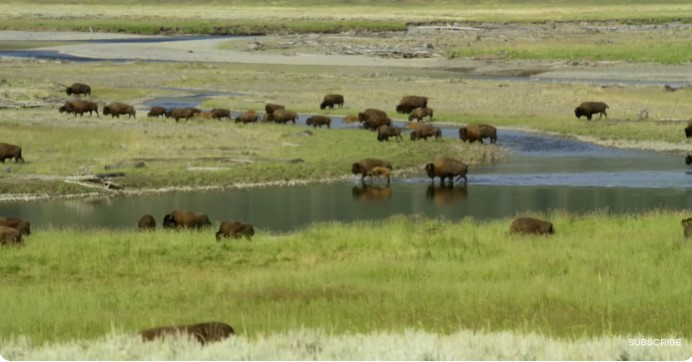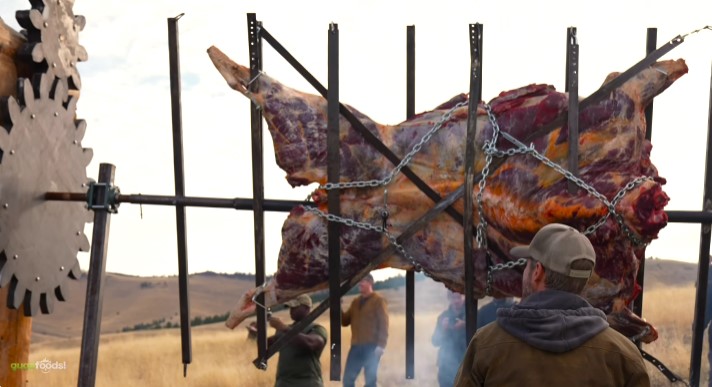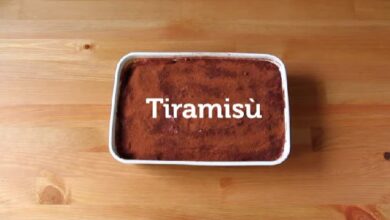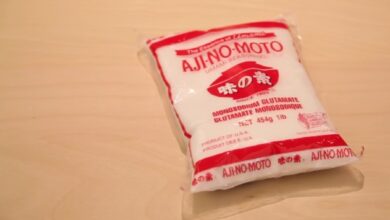Is Bison Halal
Understanding the halal status of various foods is crucial for many Muslim consumers who adhere to dietary laws outlined in Islamic teachings. One such food item that often comes into question is bison meat. This article delves into the details of whether bison is considered halal, providing a comprehensive look at Islamic dietary laws, the nature of bison, and the processes involved in ensuring meat is halal.

Introduction
The word “halal” translates to “permissible” in Arabic, and it denotes foods and practices that are allowed under Islamic law. For Muslim consumers, the halal status of food is not just about avoiding certain ingredients but also about ensuring that the food was prepared in a manner that aligns with Islamic principles. When it comes to meat, this involves specific slaughtering practices, known as dhabihah.
Bison, also known as buffalo in some regions, is a large mammal that roams the plains of North America. As interest in alternative meats grows, questions arise about the halal status of bison. Is it permissible for Muslim consumers to eat bison meat? What criteria must be met for it to be considered halal? This article explores these questions in detail, providing the information you need to make an informed decision.
What Makes Meat Halal?
To determine if bison is halal, it’s important to understand what makes any meat halal. The main requirements include:
- Animal Type: The animal must be one that is allowed under Islamic law. Generally, this includes cattle, sheep, goats, and certain birds. Predatory animals and those that eat carrion are forbidden.
- Slaughtering Process: The animal must be slaughtered by a Muslim who invokes the name of Allah at the time of slaughter. The method involves a swift, deep incision with a sharp knife on the neck, cutting the jugular vein, carotid artery, and windpipe.
- Drainage of Blood: All blood must be drained from the veins.
- Healthy Animal: The animal must be healthy at the time of slaughter.

Is Bison Halal?
Bison meat can be considered halal if the above criteria are met. Here are the specifics:
- Animal Type: Bison is not a predatory animal and does not consume carrion. Therefore, it falls into the category of permissible animals.
- Slaughtering Process: The bison must be slaughtered according to dhabihah practices. This means a Muslim must perform the slaughter while invoking the name of Allah.
- Drainage of Blood: Proper slaughtering ensures that blood is fully drained.
- Health Status: The bison must be healthy and free from disease at the time of slaughter.
If these conditions are met, bison meat is considered halal.
How Does Bison Taste Different from Other Meats?
Bison meat is often praised for its unique flavor and nutritional benefits. Here are some key differences:
- Flavor: Bison meat has a richer, slightly sweeter flavor compared to beef. It’s often described as more intense and less fatty.
- Nutritional Content: Bison is lower in fat and calories than beef but higher in protein and iron.
- Texture: The meat is tender yet dense, offering a satisfying bite.
Where to Buy Halal Bison Meat
Finding halal bison meat can be a bit challenging but not impossible. Here are some tips:
- Local Butchers: Check with local halal butchers who might source or be able to source bison meat.
- Online Retailers: There are several online stores specializing in halal products, including meats.
- Farmers’ Markets: Some farmers who raise bison may adhere to halal practices or be willing to accommodate specific slaughtering requests.
- Specialty Stores: Certain specialty grocery stores that cater to Muslim communities might stock halal bison meat.
Frequently Asked Questions
What is halal meat?
Halal meat is meat that is permissible for Muslims to eat according to Islamic dietary laws. It must come from an animal that is slaughtered in the name of Allah by a Muslim, and all blood must be drained from the veins. The animal must also be healthy at the time of slaughter.
Is bison meat considered halal?
Bison meat can be considered halal if it meets specific criteria: the bison must be slaughtered by a Muslim who invokes the name of Allah, the animal must be healthy, and all blood must be drained from the veins. If these conditions are met, bison meat is halal.
How does bison meat taste different from beef?
Bison meat has a richer, slightly sweeter flavor compared to beef. It is less fatty, which gives it a leaner taste. The texture is tender yet dense, offering a satisfying bite.
Where can I buy halal bison meat?
Halal bison meat can be purchased from local halal butchers, online retailers specializing in halal products, farmers’ markets where bison farmers may adhere to halal practices, and specialty grocery stores that cater to Muslim communities.
What makes meat halal?
For meat to be halal, the animal must be permissible under Islamic law, it must be slaughtered by a Muslim who invokes the name of Allah, all blood must be drained, and the animal must be healthy at the time of slaughter.
Can bison meat be part of a healthy diet?
Yes, bison meat is low in fat and calories but high in protein and iron, making it a healthy alternative to other red meats. It provides essential nutrients while being leaner than beef.
Is all bison meat halal?
Not all bison meat is halal. Only bison that are slaughtered according to Islamic dietary laws, which include being slaughtered by a Muslim while invoking the name of Allah and having all blood drained, can be considered halal.
How is halal bison meat processed?
Halal bison meat processing involves ensuring the animal is healthy, slaughtering by a Muslim who invokes the name of Allah, making a swift, deep incision to cut the jugular vein, carotid artery, and windpipe, and draining all blood from the animal.
What does halal certification mean?
Halal certification means that a product meets the standards of Islamic dietary laws. For meat, it indicates that the animal was slaughtered according to Islamic guidelines, ensuring it is permissible for Muslims to consume.
Are there nutritional benefits to eating bison meat?
Yes, bison meat is high in protein, iron, and other essential nutrients while being lower in fat and calories than beef. It is a healthy choice for those looking to maintain a balanced diet.
Is halal meat more expensive?
Halal meat can be more expensive due to the specific slaughtering practices required and the need for halal certification. However, prices can vary depending on the supplier and region.
Can non-Muslims eat halal meat?
Yes, non-Muslims can eat halal meat. Halal meat is simply meat that has been slaughtered and prepared according to Islamic dietary laws, and it is safe and permissible for anyone to consume.
What animals are considered halal?
Animals considered halal include cattle, sheep, goats, chickens, and certain birds. Predatory animals and those that eat carrion are forbidden.
How can I ensure the bison meat I buy is halal?
To ensure bison meat is halal, look for halal certification from a reputable certifying body. You can also ask local halal butchers or farmers about their slaughtering practices to verify that they adhere to Islamic guidelines.
Does bison meat contain any harmful additives?
Halal bison meat should not contain any harmful additives. However, it’s always important to check labels and ask suppliers about any added ingredients to ensure the meat is pure and free from prohibited substances.
What does halal slaughter involve?
Halal slaughter involves making a swift, deep incision with a sharp knife on the animal’s neck, cutting the jugular vein, carotid artery, and windpipe. The slaughter must be performed by a Muslim who invokes the name of Allah, and all blood must be drained from the animal.
Are there different types of halal certification?
Yes, there are different types of halal certification, depending on the certifying body and region. Certifications typically ensure that the product meets specific Islamic dietary standards, and reputable certifying organizations provide assurance of compliance.
Can halal meat be organic?
Yes, halal meat can also be organic if the animal is raised and slaughtered according to both halal and organic standards. This means no synthetic pesticides, hormones, or antibiotics are used, and the slaughter adheres to Islamic guidelines.
What is the difference between halal and kosher meat?
Halal and kosher meats are both prepared according to religious dietary laws, but the practices differ. Halal slaughter requires the name of Allah to be invoked, and kosher slaughter adheres to Jewish dietary laws, with different blessings and processes involved.
How can I verify the halal status of a restaurant?
To verify the halal status of a restaurant, look for halal certification displayed at the establishment or on their website. You can also ask the staff about their halal practices and sourcing to ensure they comply with Islamic dietary laws.
Ensuring your food meets halal standards is essential for maintaining religious and dietary practices. By following the guidelines and sourcing meat from reliable suppliers, you can enjoy a variety of foods while adhering to your values.
Conclusion
In summary, bison meat can be halal if it meets specific Islamic dietary requirements. This includes the type of animal, the method of slaughter, the drainage of blood, and the health of the animal. Bison offers a unique flavor profile and nutritional benefits, making it an attractive option for those seeking variety in their diet. When buying bison meat, ensure that it is certified halal to comply with your dietary needs.
Whether you are exploring new meat options or sticking to a strict halal diet, understanding these guidelines will help you make informed choices. Enjoy the richness and health benefits of bison meat with the peace of mind that it aligns with your dietary values.
Read also: Tony Roma’s Menu With Prices





